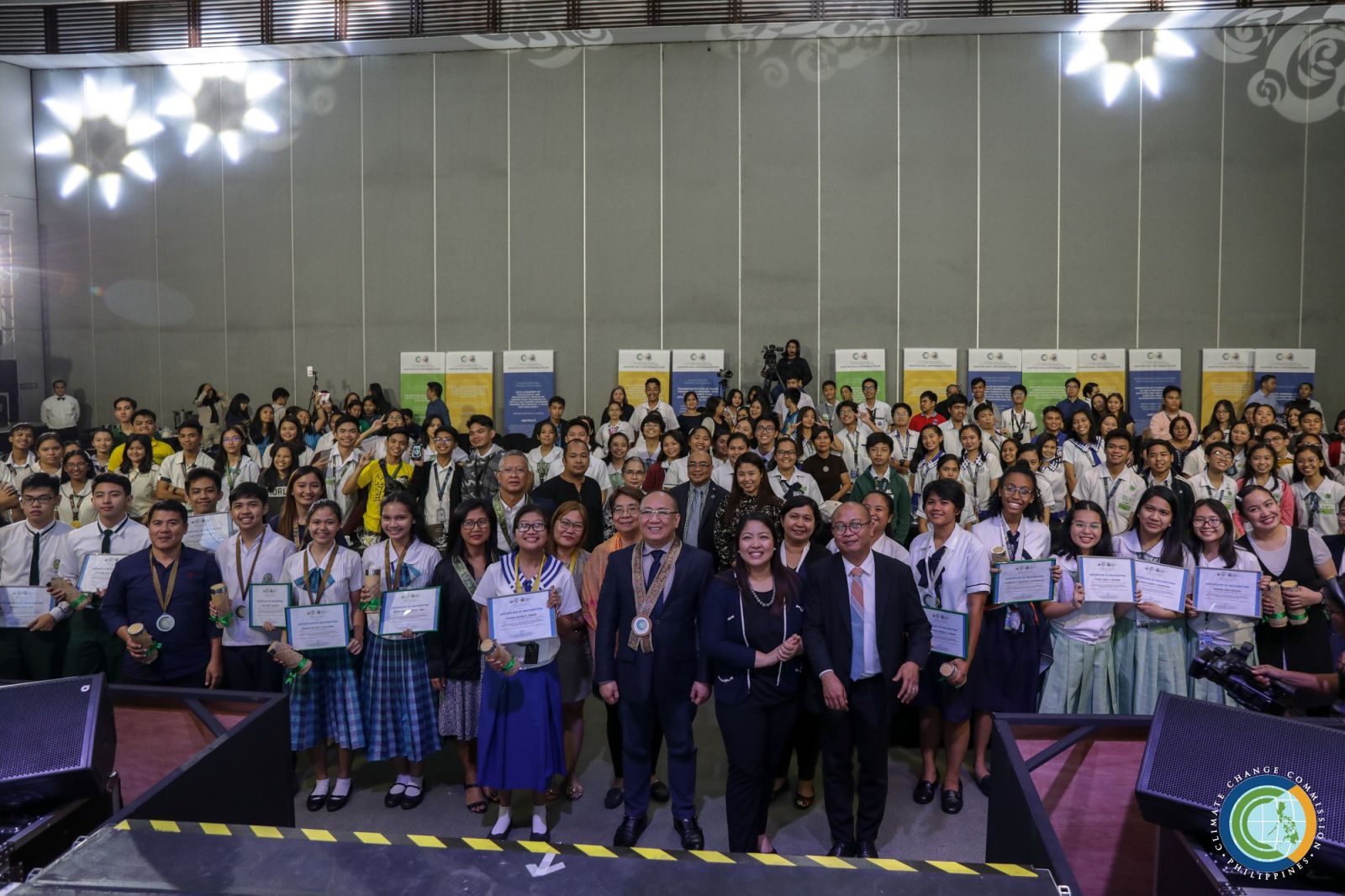
United Nations (UN) Secretary-General António Guterres acknowledged that the youth movement has generated a momentum in climate action during the UN Youth Climate Summit on 21 September 2019 in New York. This shows that the youth, being the stakeholders most likely to be exposed to the effects of climate change, has moved above awareness and has taken an active role in addressing one of the biggest challenges of our time. In the said event, young climate champions represented and amplified the voice of the youth in a dialogue with decision makers.
Pursuant to RA 9729 as amended, the Climate Change Commission (CCC), as the lead agency tasked to coordinate and synchronize climate change programs in consultation with national government agencies and other stakeholders, has developed the Climate Science Youth Program aimed towards increasing the knowledge of the youth on climate change adaptation and mitigation through the information from the latest climate science. It also envisions to inform the curriculum at the secondary education level in partnership with the Department of Education and the National Panel of Technical Experts (NPTE).
Part of this program is the Gawad CCC: Search for Outstanding Young Climate Scientists where students from science high schools are provided with appropriate platforms to inspire scientific discussions, technology innovation, and climate change leadership benefiting the future of the Philippines in the era of climate change.
The National Climate Science Youth Congress was held during the 2018 Global Warming and Climate Change Consciousness Week with the theme “The 1.5 °Celsius Challenge: Securing Water for All Filipinos” by recognizing and supporting emerging young student-scientists and their researches related to water security in consideration of climate change adaptation and mitigation. The event featured researches of students from the Philippine Science High School Main Campus.
In 2019, the CCC spearheaded the 2019 Gawad CCC: Search for Outstanding Young Climate Scientists. Acknowledging the contribution of the youth in addressing climate change, the 2019 Gawad CCC opened a stage for students of science high schools in the National Capital Region to present their researches on Food-Water-Energy Nexus. The board of judges consisted of members of the NPTE and representatives from other national government agencies. The schools and their researches are as follows:
1. Navotas National Science High School, Rapid Assessment of Toxicological and Environmental Effects of Common Food Colorants via ORTCAA and Fourier Transform Infrared Spectroscopy: A Road for Food Safety;
2. Parañaque Science High School, Ovicidal and Larvicidal Property of Makahiya (Mimosa pudica) Tablets to Dengue Mosquito (Aedes aegypti) in Undrained Flood Water;
3. Quezon City Science High School, Solar Powered Device: Scanning and Detecting Bacterial Blight (Xanthomonas oryzae pv.oryzae) in Rice (Oryza sativa) Crops using Convolutional Neural Network;
4. Pasay City Science High School, Portable Seawater Purifier through Filtration and Distillation System Utilizing Coconut (Cocos nucifera) Husk and Coconut Cinder; and
5. City of Mandaluyong Science High School, Microstructures of Yellowfin Tuna (Thunnus albacares) Bone Powder as Tensile Strength Stimulator for Cassava (Manihot esculenta) Starch-based Bioplastic.
The researches presented were creative solutions to balance trade-offs using the nexus approach and displayed the great potential of the Philippines’ young climate leaders to address climate change.
